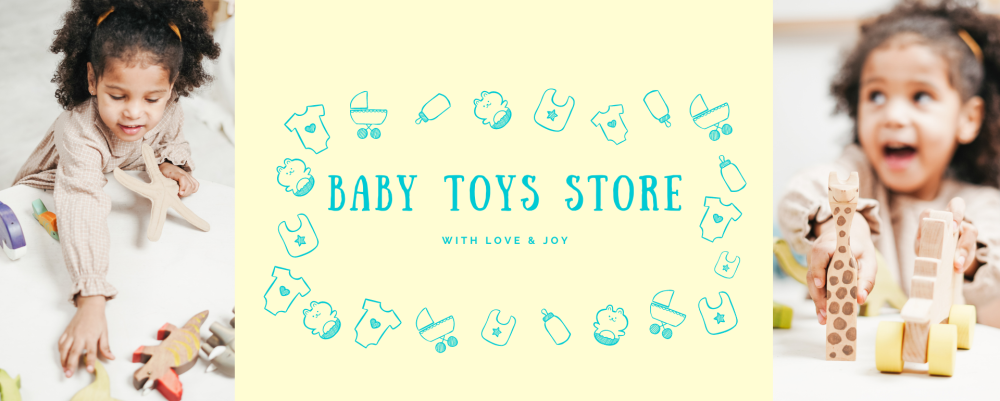Feeding your newborn is one of the most important aspects of their early development. As a parent, you have different options when it comes to nourishing your baby, including breastfeeding, formula feeding, and eventually introducing solids. Here’s a guide to help you navigate the different feeding methods
- Which Baby Foods Can Help Boost Immunity?
 Boosting your baby’s immunity is crucial for their health and well-being. Here are some baby foods that can help enhance their immune system: Breast Milk: If possible, breastfeeding is one of the best ways to support your baby’s immune system. It provides essential antibodies and nutrients. Fruits and Vegetables: Introduce […]
Boosting your baby’s immunity is crucial for their health and well-being. Here are some baby foods that can help enhance their immune system: Breast Milk: If possible, breastfeeding is one of the best ways to support your baby’s immune system. It provides essential antibodies and nutrients. Fruits and Vegetables: Introduce […] - What Baby Food Is High In Calcium?
 Many baby foods are designed to provide essential nutrients like calcium for healthy development. Here are some common baby foods that are high in calcium: Dairy Products: Dairy-based foods like yogurt and cheese are excellent sources of calcium for babies. Look for plain, unsweetened varieties with no added sugar. Fortified […]
Many baby foods are designed to provide essential nutrients like calcium for healthy development. Here are some common baby foods that are high in calcium: Dairy Products: Dairy-based foods like yogurt and cheese are excellent sources of calcium for babies. Look for plain, unsweetened varieties with no added sugar. Fortified […] - Can Baby Food Cause Constipation?
 Yes, certain types of baby food can potentially cause constipation in some infants. Constipation occurs when a baby has difficulty passing stool, and their bowel movements become less frequent or harder. Here are some factors related to baby food that can contribute to constipation: Introduction of Solid Foods: When babies […]
Yes, certain types of baby food can potentially cause constipation in some infants. Constipation occurs when a baby has difficulty passing stool, and their bowel movements become less frequent or harder. Here are some factors related to baby food that can contribute to constipation: Introduction of Solid Foods: When babies […] - Can Baby Food Be Microwaved?
 Yes, baby food can be microwaved, but it should be done with caution to ensure that the food is heated evenly and to prevent hot spots that could burn your baby’s mouth. Here are some tips for safely microwaving baby food: Use Microwave-Safe Containers: Always use microwave-safe containers and utensils […]
Yes, baby food can be microwaved, but it should be done with caution to ensure that the food is heated evenly and to prevent hot spots that could burn your baby’s mouth. Here are some tips for safely microwaving baby food: Use Microwave-Safe Containers: Always use microwave-safe containers and utensils […] - Are Baby Food Allowed On Planes?
 Yes, baby food is generally allowed on planes. Airlines typically have policies in place to accommodate parents travelling with infants and young children, which often includes allowing baby food and necessary baby-related items on board. Here are some important points to keep in mind when travelling with baby food on […]
Yes, baby food is generally allowed on planes. Airlines typically have policies in place to accommodate parents travelling with infants and young children, which often includes allowing baby food and necessary baby-related items on board. Here are some important points to keep in mind when travelling with baby food on […] - Why Baby Food Pouches Are Bad?
 Baby food pouches can be a convenient option for parents on the go, but there are some concerns and drawbacks associated with them. Here are some reasons why baby food pouches may have drawbacks: Limited Textural Variety: Baby food pouches typically contain pureed or mashed foods, which lack the texture […]
Baby food pouches can be a convenient option for parents on the go, but there are some concerns and drawbacks associated with them. Here are some reasons why baby food pouches may have drawbacks: Limited Textural Variety: Baby food pouches typically contain pureed or mashed foods, which lack the texture […]
Breastfeeding
Breast milk provides optimal nutrition and immune protection for your newborn. Here are some essential tips for successful breastfeeding:
- Establish a good latch: Ensure your baby is latching onto your breast correctly, with their mouth covering the areola. Seek help from a lactation consultant if you’re having difficulties.
- Nurse on demand: Breastfeed your newborn whenever they show signs of hunger, such as rooting, sucking motions, or increased alertness.
- Stay hydrated and eat a balanced diet: Drink plenty of water and maintain a nutritious diet to support your milk supply.
- Create a comfortable feeding environment: Find a quiet and relaxing space where you can comfortably nurse your baby without distractions.
- Seek support: Join breastfeeding support groups or seek guidance from a lactation consultant or your healthcare provider if you encounter challenges or have concerns.
Formula Feeding
Formula feeding is an alternative to breastfeeding and can be a suitable choice for many families. Here’s what you need to know:
- Choose the right formula: Consult with your pediatrician to select a formula that suits your baby’s needs and follow the instructions for preparation and feeding.
- Sterilize feeding equipment: Before using bottles, nipples, and other feeding accessories, make sure to sterilize them properly to maintain hygiene.
- Bond during feeding: Use feeding time as an opportunity to bond with your baby by maintaining eye contact, talking, and cuddling.
- Follow a regular feeding schedule: Formula-fed babies typically follow a more structured feeding schedule compared to breastfed babies. Offer bottles at regular intervals based on your baby’s cues and their age.
Introducing Solids
Around the age of six months, you can begin introducing solid foods alongside breastfeeding or formula feeding. Here are some guidelines:
- Start with single-ingredient purees: Begin with iron-rich foods like iron-fortified baby cereals, followed by pureed fruits and vegetables.
- Introduce new foods gradually: Offer one new food at a time, waiting a few days before introducing another. This allows you to monitor for any potential allergies or sensitivities.
- Watch for readiness signs: Look for signs that your baby is ready for solids, such as sitting with support, showing interest in food, and having good head control.
- Offer a variety of textures: As your baby grows, gradually introduce mashed, finely chopped, and eventually finger foods to encourage self-feeding and oral motor development.
- Avoid certain foods: In the beginning, avoid foods that are choking hazards or common allergens, such as honey, whole nuts, cow’s milk, egg whites, and seafood.
Always consult with your pediatrician or a registered dietitian for personalized guidance and recommendations based on your baby’s specific needs. Remember, feeding your newborn is a beautiful bonding experience, and whether you choose breastfeeding, formula feeding, or a combination of both, what matters most is that your baby is well-nourished, loved, and thriving.








